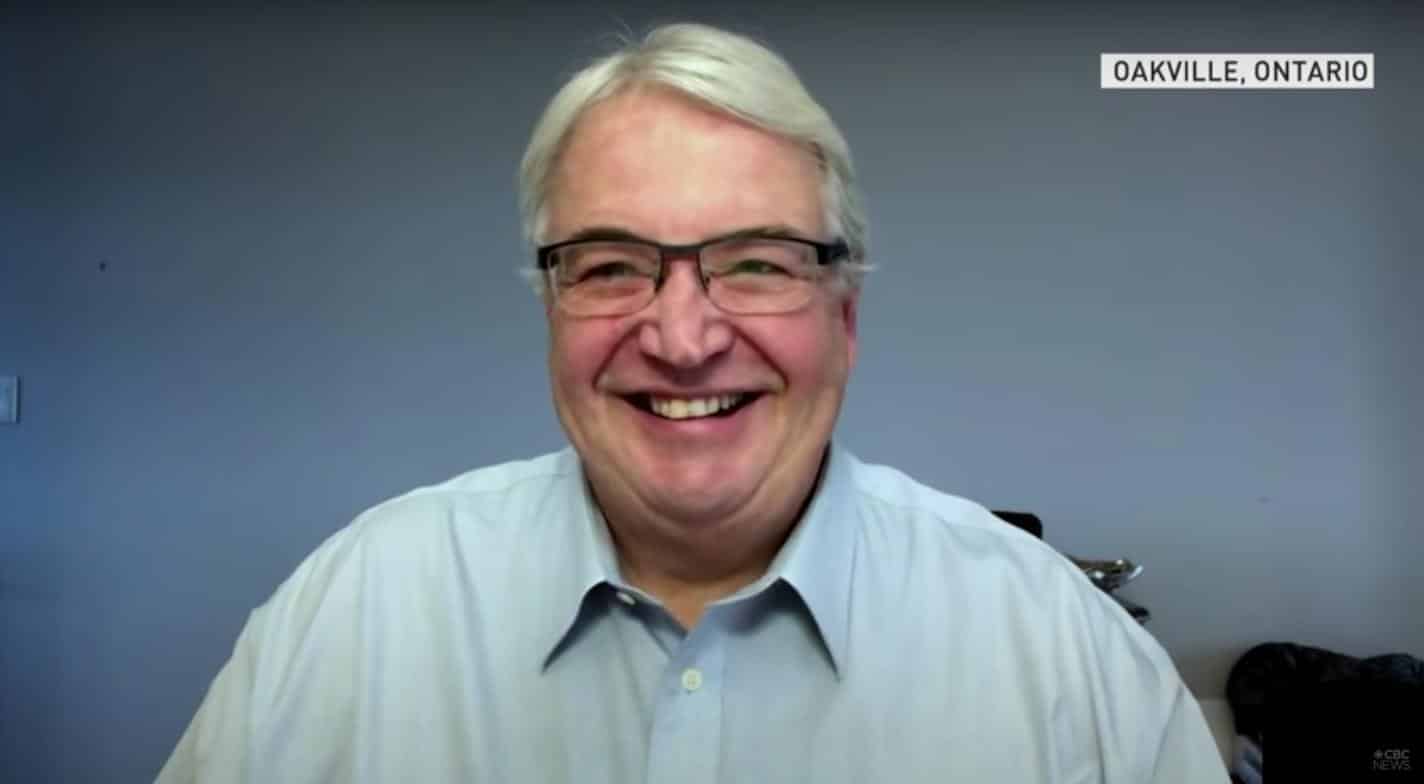As gas prices continue to soar, Dan McTeague makes the rounds of Canadian media sharing tips and tricks to help buyers save a few bucks at the pump.
The former Liberal MP is known as ‘Gas Buddy Dan’ or the ‘Gas Wizard,’ a level-headed media persona who offers gas price forecasts and expert commentary on price changes in gasoline and the impacts they’ll have on consumers.
But McTeague is also the president of Canadians for Affordable Energy, a pro-fossil fuel advocacy group that presents itself as leading the fight against what he describes as climate change “alarmists” and “bedwetters.”
In recent months, McTeague has made near-daily appearances in English-language Canadian establishment media, including CTV, CBC, Global, the Canadian Press, and radio stations owned by Bell Media.
But when he’s not on mainstream airwaves, McTeague veers off into conspiracy theories that suggest Canadian politicians have introduced legislation — either limitations on the expansion of non-renewable energy infrastructure or carbon taxes — that is deliberately intended to harm Canadian consumers. In an April post to the Canadians for Affordable Energy website, he wrote: “Trudeau and Singh want to drive prices up. They want you to pay more and more so that: Businesses can’t grow their businesses, and go bankrupt; Investors don’t invest in Canada, but, instead go elsewhere; Canada, and Canadian business, becomes less competitive.” In the same post, McTeague also refers to politicians and other individuals who support reductions in fossil fuel consumption and taxes on carbon emissions as “green cultists.”
Smart people are never interviewed by media. It eviscerates the climate catastrophists’ ability to fear us all into accepting energy and food poverty https://t.co/I10qikYI7R
— Dan McTeague (@GasPriceWizard) June 29, 2022
Even during his more staid television appearances, McTeague will slide in some of his favorite talking points. In a recent segment on CTV News, he claimed that “some policy-makers want this” in reference to high gas prices.
Numerous attempts to contact McTeague to determine which policy-makers he was referring to were unsuccessful. To date, no political party in Canada has introduced legislation or otherwise indicated a desire to increase the cost of gas, whose price is principally determined by the global oil market, not domestic production or taxation levels.
McTeague has also criticized the idea that human activity is leading the present climate emergency, despite overwhelming scientific consensus that climate change is anthropogenic in nature. In an October 2020 Financial Post opinion piece, he wrote: “Some might say we have a state religion in Canada and it is called climate. But my experience with religion is that it is rational—and this obsession isn’t. What we have is a cult of climate. … At Canadians for Affordable Energy we are working hard to speak out against the irrationality of the current climate obsession.”
Canadians for Affordable Energy’s articles of incorporation states its purpose is to insist federal and provincial governments prioritize energy affordability when developing environmental and energy policies.
Canadians for Affordable Energy was launched by Conservative member of parliament John Williamson in 2016. From the outset, the organization was well-connected to a web of conservative groups in Canada: Williamson had previously worked with the Canadian Taxpayers Federation (CTF), the Manning Centre for Building Democracy (today the Canada Strong and Free Network), the Fraser Institute, and the Atlantic Institute for Market Studies (AIMS). All four of these organizations are members of the Atlas Network, a global network of libertarian think tanks. Williamson was also a founding editorial board member of the National Post, the flagship newspaper of the Postmedia network — Canada’s leading publisher of press releases issued by the aforementioned organizations.
Kevin Lacey, another former director of the Canadian Taxpayers Federation as well as a former advisor to Stephen Harper, succeeded Williamson as the acting president of Canadians for Affordable Energy in 2018 and 2019. The CTF has never hidden its overt opposition to carbon taxes.
“Opposing the carbon tax has been one of the Canadian Taxpayers Federation’s biggest fights, so it was rewarding to gain some ground in 2019 … (when) Alberta (scrapped) its provincial carbon taxes,” the organization said in a 2019 report. “The CTF has been the leading voice against carbon taxes in Canada. We hosted anti-carbon tax events across the country, launched billboards, handed out bumper stickers, debated pro-tax advocates, intervened in court cases and conducted numerous media interviews on why carbon taxes are bad policy.”
Taxing major greenhouse gas emitters for the pollution they cause is generally viewed by climate change experts as an effective way to incentivize major polluters to instigate their own emissions reductions strategies.
The organization also includes advisors with links to Resource Works and the Headwaters Strategy Group. Resource Works is led by Stewart Muir, who also runs Headwaters and is listed as a contributor to Canadians for Affordable Energy. Resource Works has received seed funding from the B.C. Business Council but will otherwise not disclose its funding, and it serves primarily to advocate for resource development in British Columbia while attacking critics.
After Lacey’s stint, McTeague took the reins. He’s been successful at wearing two hats: offering helpful hints to consumers in his major media hits, while advocating against climate action on social media. But that dual role is no longer going unnoticed.
When McTeague was called to speak to the parliamentary standing committee on natural resources last month, New Democratic Party of Canada Member of Parliament Charlie Angus chastised him for various inflammatory statements related to climate change.
Contacted for comment, Angus responded that he was surprised to see that the Conservatives had called on McTeague as a witness, as Angus was not aware McTeague had any expertise in the field. “I have seen him regularly on TV as a guy advising people about gas prices, (but this has nothing) to do with the questions of investing in workers to create a new energy economy.”
Angus said he looked at McTeague’s social media presence for further clues about his background. “I was deeply concerned to see a pattern of belligerent anti-climate change denialism. I was concerned at how he used insecurity over the high price of gas as a platform to attack both the science of climate change and the need of government to invest in alternatives,” he said. “I questioned him at committee on these views because I was concerned that the Conservatives were looking to embed potential climate change denialism in the committee testimony.”
Journalists who broadcast McTeague’s views on gas prices may also want to consider what they’re embedding in the public record.
Subscribe to our newsletter
Stay up to date with DeSmog news and alerts







